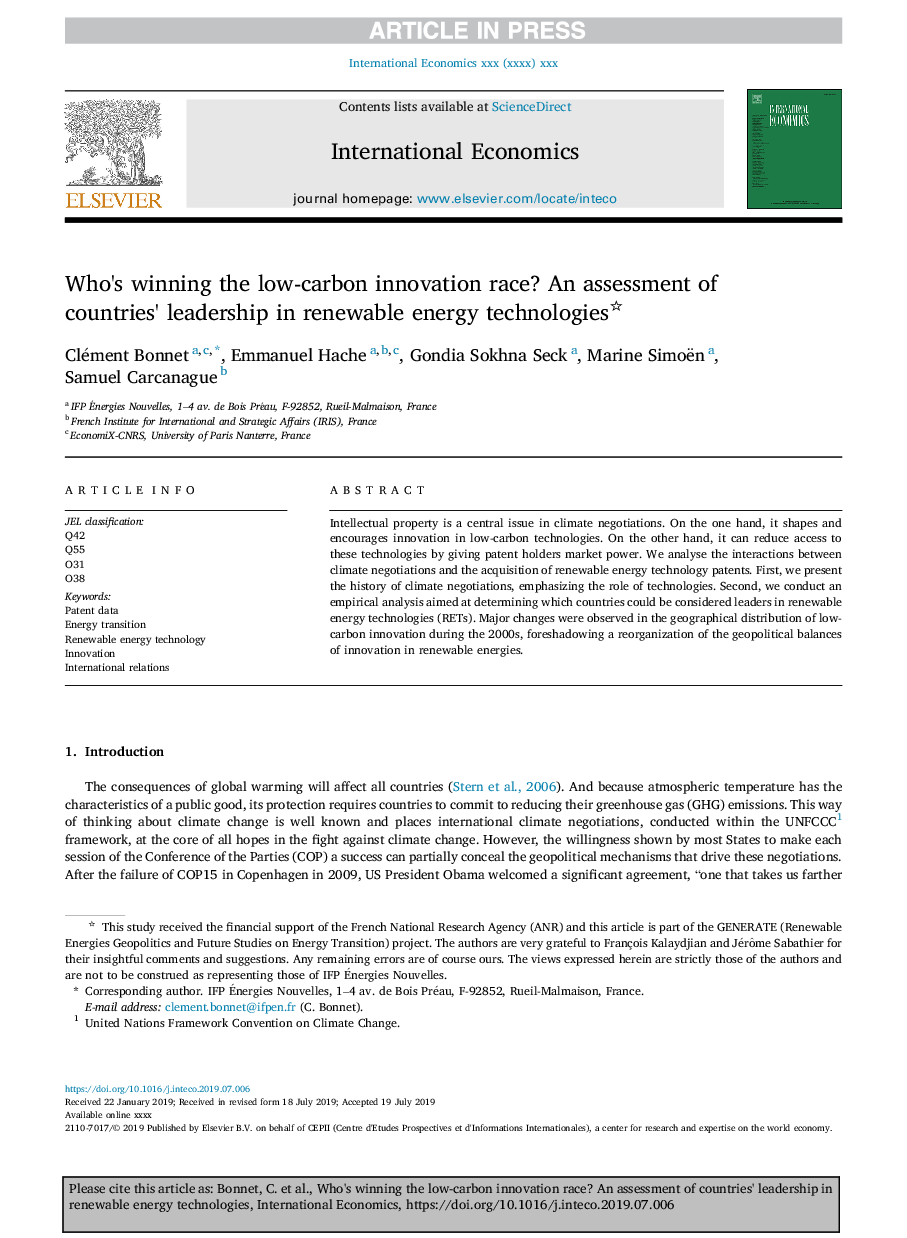| Article ID | Journal | Published Year | Pages | File Type |
|---|---|---|---|---|
| 13462584 | International Economics | 2019 | 12 Pages |
Abstract
Intellectual property is a central issue in climate negotiations. On the one hand, it shapes and encourages innovation in low-carbon technologies. On the other hand, it can reduce access to these technologies by giving patent holders market power. We analyse the interactions between climate negotiations and the acquisition of renewable energy technology patents. First, we present the history of climate negotiations, emphasizing the role of technologies. Second, we conduct an empirical analysis aimed at determining which countries could be considered leaders in renewable energy technologies (RETs). Major changes were observed in the geographical distribution of low-carbon innovation during the 2000s, foreshadowing a reorganization of the geopolitical balances of innovation in renewable energies.
Keywords
Related Topics
Social Sciences and Humanities
Economics, Econometrics and Finance
Economics, Econometrics and Finance (General)
Authors
Clément Bonnet, Emmanuel Hache, Gondia Sokhna Seck, Marine Simoën, Samuel Carcanague,
